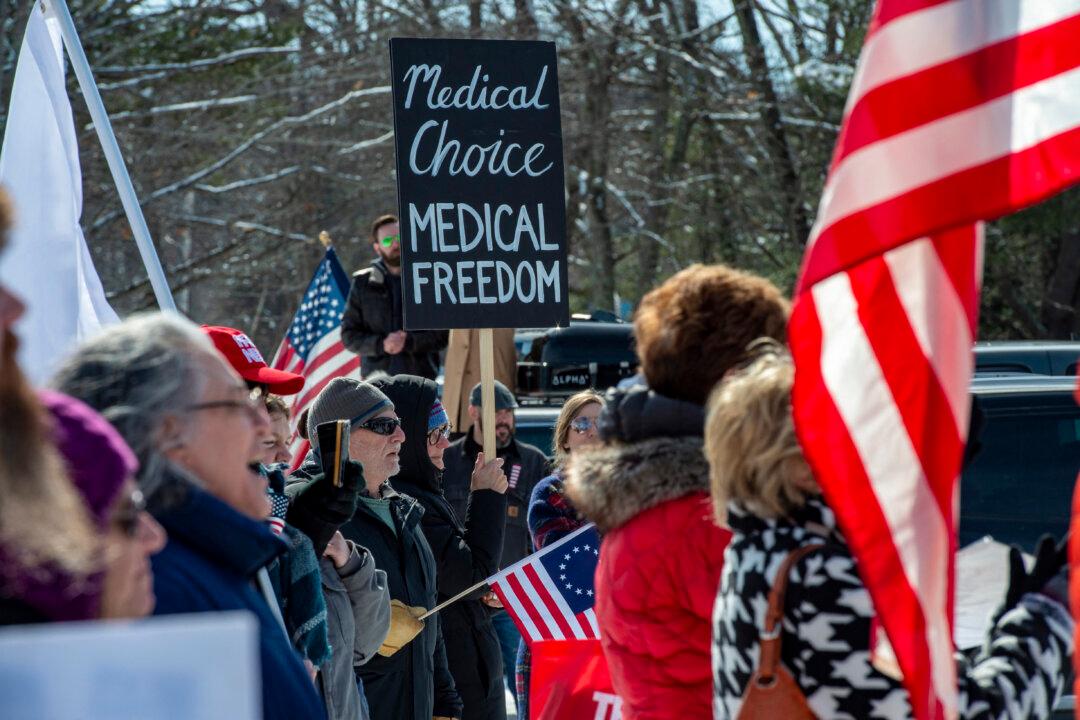A recent court ruling on Maine’s COVID vaccine mandate for healthcare workers is seen by some vaccine choice advocates as the latest sign that medical freedom is becoming a sanctified constitutional right in America.
In a 3-0 ruling, the First Circuit Court of Appeals ruled (pdf) on Wednesday that Maine District Judge John Levy erred in dismissing a First Amendment and Equal Protection claim brought against the state by a group of healthcare for refusing to consider religious exemptions from the COVID vaccine mandate.




